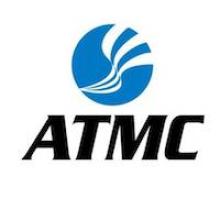Atlantic Telephone Membership Corp. to Expand Fiber in Rural North Carolina
The USDA's ReConnect Program to expand broadband in rural areas has been awarding funding for several weeks now; electric and telephone cooperatives have received significant awards. In North Carolina, Atlantic Telephone Membership Corporation (ATMC) recently learned that their application for ReConnect funds has been granted and the cooperative will receive $7.9 million toward expanding their Fiber-to-the-Home (FTTH) service.
Celebrating in Columbus County
Cooperative CEO and General Manager Keith Holden, USDA State Director for North Carolina Robert Hosford, and Chief of the Waccamaw Siouan Tribe Michael Jacobs gathered at the Tribe Headquarters in Bolton to announce the award and discuss the project. ATMC will match the USDA grant with an additional $7.9 million, rather than take a loan from the ReConnect program. The total cost of the project is around $15.87 million and will deploy FTTH to more than 2,700 premises, including homes and more than 50 businesses. The infrastructure will also serve three critical community facilities, ten educational facilities, and 23 agricultural operations in northern Columbus County.
At the event, Hosford noted that better connectivity will help agricultural establishments in the region, one of the main sectors of the local economy.
“The health and vibrance of rural communities most usually is from farmers and forestry in this state,” Hosford said. “If those small communities are healthy, that means their farming communities are healthy, and this is just another tool in our toolbox to help these rural communities.”
Hosford said the agriculture industry has struggled in recent months due to ongoing trade disputes, so any boost is a welcome one.
ATMC will use the funding to build out to Tabor City, Hallsboro, Lake Waccamaw, Bolton, and areas north of Whiteville.
Other Grant Sources



